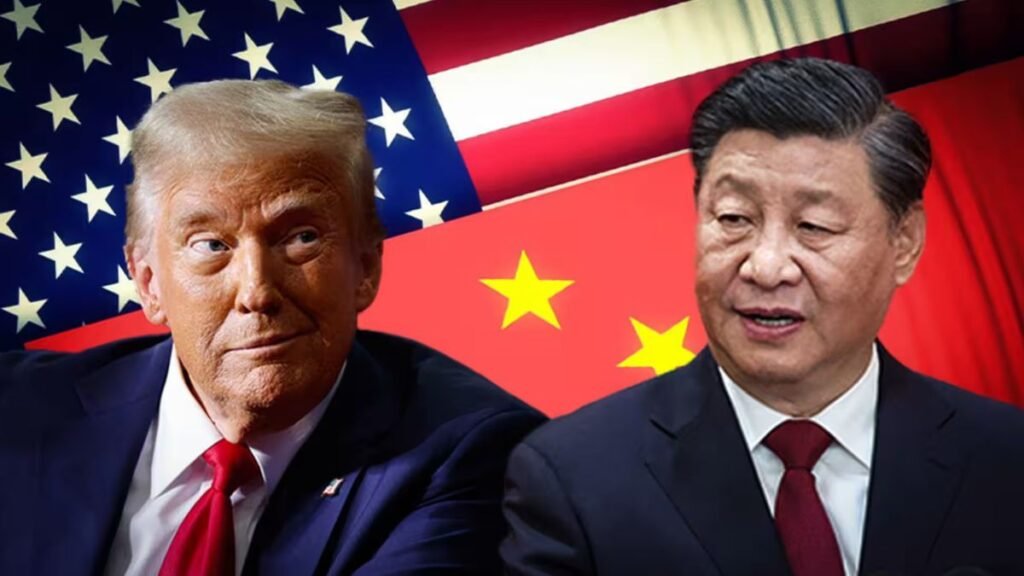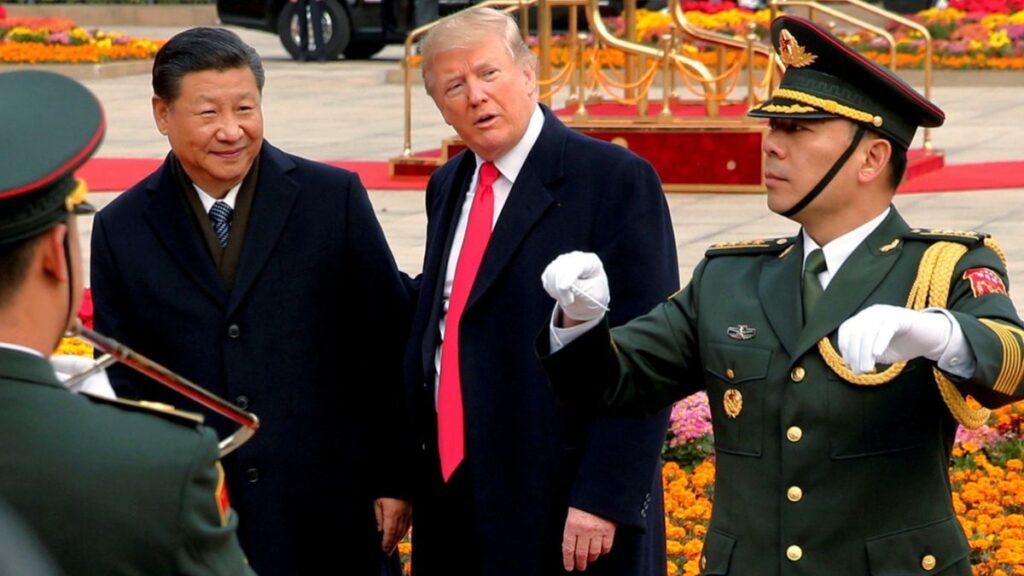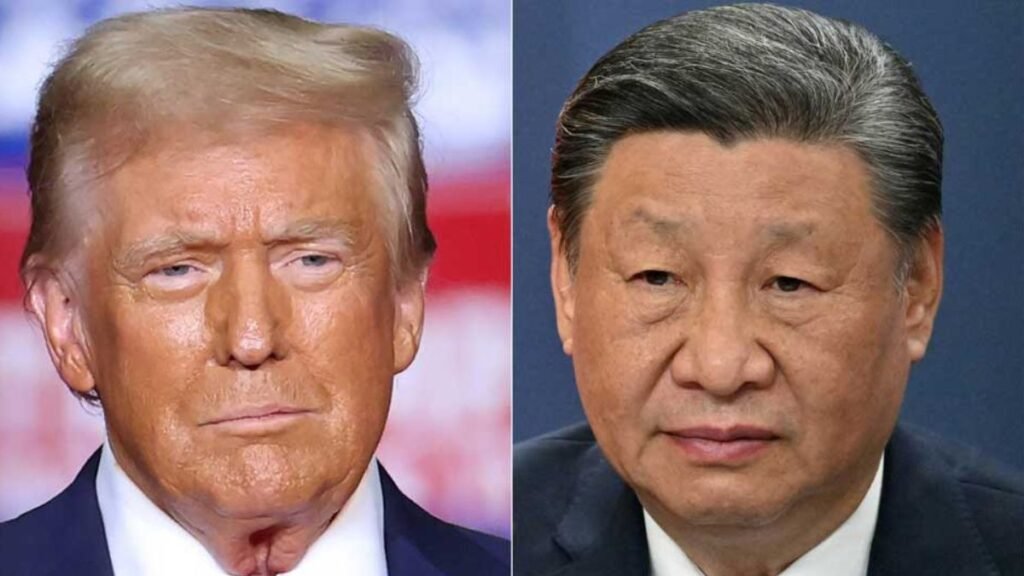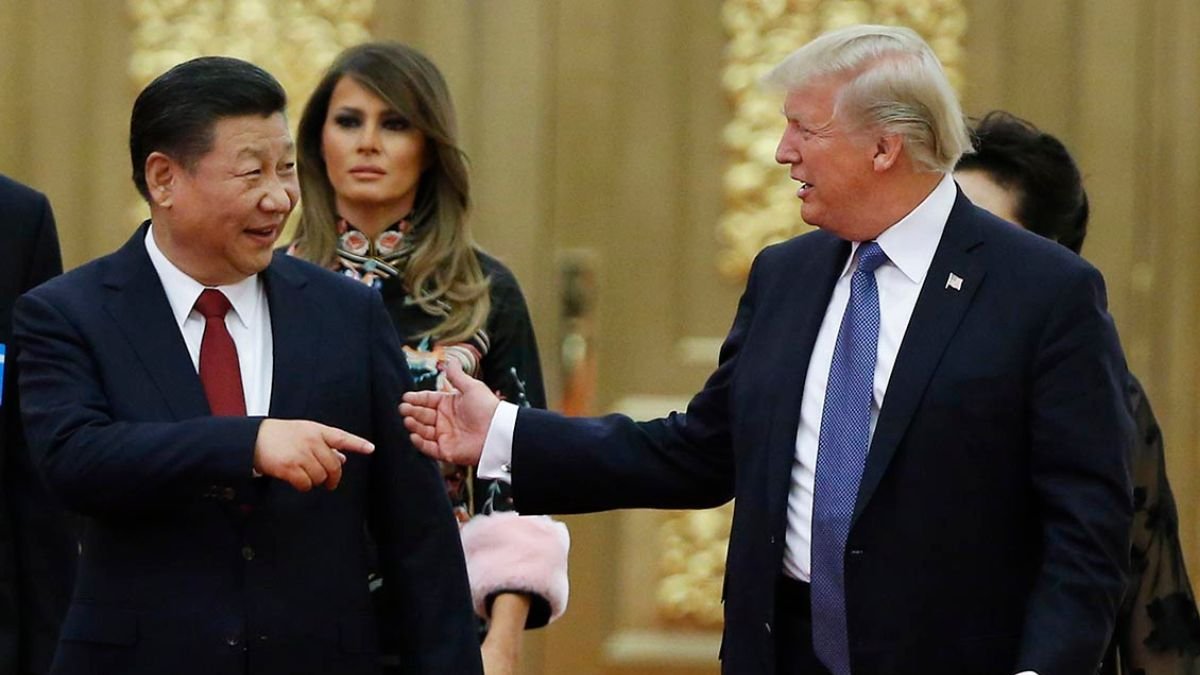China has officially extended an invitation to US President Donald Trump to meet President Xi Jinping in Beijing. The proposed Trump-Xi Beijing Summit 2025 has generated significant attention in diplomatic circles, but the White House has yet to confirm whether Trump will accept the invitation. The delay reflects ongoing challenges over trade disagreements and Beijing’s handling of chemicals used to produce fentanyl, the potent opioid fueling the US drug crisis.
Madrid Negotiations: Pathway to Beijing or Roadblock?
US Treasury Secretary Scott Bessent is scheduled to meet Chinese Vice Premier He Lifeng in Madrid, marking the fourth round of talks aimed at resolving the trade and fentanyl issues. Diplomats from both sides hope these discussions could pave the way for Trump to attend the Trump-Xi Beijing Summit 2025 just ahead of the Asia-Pacific Economic Cooperation (APEC) summit on October 31 in South Korea.

Recent calls between US officials, including Secretary of State Marco Rubio and Defense Secretary Pete Hegseth, with their Chinese counterparts added speculation about a potential leader-level meeting. However, sources familiar with the negotiations suggest that insufficient progress may limit the chances of a full summit in Beijing, with a possible encounter instead occurring on the sidelines of APEC.
Also Read – Tyler Robinson: From Top Student to the Suspect in Charlie Kirk’s Murder
Fentanyl and Trade Deadlock Remain Key Issues
The production and export of fentanyl precursor chemicals remain a major sticking point in US-China relations. Washington has consistently urged Beijing to take stronger action to curb exports that contribute to the opioid crisis. China, on the other hand, has tied any meaningful action on fentanyl to the removal of Trump-era tariffs on Chinese goods.
US officials insist that Beijing must demonstrate tangible progress before any consideration of tariff relief. One insider described the situation as a “major stumbling block” for the Trump-Xi Beijing Summit 2025, highlighting how the deadlock continues to complicate diplomatic engagement.
Experts Debate Likelihood of a Beijing Meeting
Analysts remain divided on the prospects of the summit. Sarah Beran, a former senior White House China official, described recent calls and the Madrid negotiations as clear preparations for a leader-level meeting. Yet, she emphasized that uncertainty persists regarding whether the meeting should take place in Beijing or during the APEC summit.

Ryan Hass of the Brookings Institution expressed skepticism, noting that Beijing may be hesitant to grant Trump the same high-profile reception afforded to leaders such as Vladimir Putin or Kim Jong Un in recent years.
Conversely, Dennis Wilder, a former senior White House China official, suggested that Trump might strongly favor a Beijing summit to counter the optics of other global leaders’ warm receptions. Meanwhile, Wendy Cutler of the Asia Society Policy Institute predicts that a complete trade agreement will likely not be ready in time for Trump to justify a full summit, with tangible outcomes instead expected to be announced at APEC.
Trump’s Tariff Push and Emerging Tensions
Adding to the tension, Trump recently called on NATO countries to implement 50–100 percent sanctions on China over Russian oil purchases. He also proposed a 100 percent levy on EU imports from China, signaling aggressive trade stances.
The US has placed multiple Chinese firms on an export blacklist, which some analysts considered a symbolic move, yet it still underlines growing decoupling between the two economic powers. Beijing responded with an anti-dumping investigation into certain US semiconductor products, a move described by state-run media as a tit-for-tat reaction to Washington’s export restrictions.
Beijing Signals Readiness, But Conditions Remain
Despite the ongoing standoff, Chinese officials have privately indicated flexibility to organize a Trump-Xi Beijing Summit 2025 even on short notice. Former Chinese ambassador Cui Tiankai reportedly visited Washington to improve the summit’s prospects.

However, a former US official noted that as long as parts of Trump’s administration insist on securing a fentanyl package first, the US remains the primary obstacle to a Beijing visit. Evan Medeiros of Georgetown University aptly summarized the situation, calling the summit “a very close call in the history of close calls,” dependent on the tension between Trump’s desire for concrete deliverables and the prestige of being hosted by China.
Summit Implications for US-China Relations
If the Trump-Xi Beijing Summit 2025 occurs, it could have significant implications for international diplomacy and trade. Resolving the fentanyl dispute and advancing negotiations on tariffs may strengthen bilateral ties, but failure to reach an agreement could exacerbate tensions.
Observers note that the optics of a successful summit could bolster Trump’s image domestically while demonstrating China’s willingness to engage with the US at the highest level. On the other hand, delays or cancellations may highlight the persistent gridlock and lingering mistrust between the two nations.
Taazanow.com- Click Here

